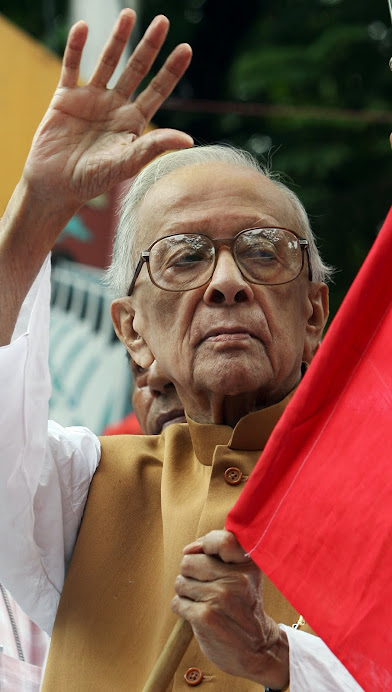Has the World Social Forum been co-opted by capitalism? Does it have a future?

March 3, 2010 -- Olivier Bonford and Eric Toussaint are members of the International Council of the World Social Forum (WSF) and of the the Committee for the Abolition of the Third World Debt (CADTM). In this interview with Marga Tojo Gonzales, they discuss the future and role of the World Social Forum as it enters its second decade. They also examine the relationship between the WSF and the call for a Fifth Socialist International by Venezuela's Hugo Chavez. Translated by Vicki Briault and Christine Pagnoulle.
* * *
Ten year after the first use of the slogan, "Another world is possible", a majority of humankind still lives in subhuman conditions, and with the international financial crisis, the situation has become even worse. Does this mean that the alternative globalisation movement has failed?
Cuba, the corporate media and the suicide of Orlando Zapata Tamayo
By Salim Lamrani
March 4, 2010 -- On February 23, 2010, Cuban inmate Orlando Zapata Tamayo died after 83 days on hunger strike. He was 42. This is the first such incident in Cuba since inmate Pedro Luis Boitel died in 1972 under similar conditions. The corporate media put the tragic incident on front pages and emphasised the plight of Cuban prisoners.[1]
Zapata's dramatic exit sparked a justifiable global uproar. The Cuban prisoner's case undeniably fosters sympathy and a sense of solidarity with a person who expressed his despair and malaise in prison, carrying out his hunger strike to the ultimate consequence. The heartfelt emotion aroused by his case is quite respectable. In contrast, the manipulation of Tamayo's death and of the grief of his family and friends by the corporate media for political purposes violates the basic principles of journalistic ethics.
Malaysian socialists lead protests against full-paying patient scheme
March 1, 2010 -- Malaysiakini -- The Malaysian government’s full-paying patient (FPP) scheme has again come under fire from the Coalition Against Health Service Privatisation, which held simultaneous pickets outside four public hospitals nationwide.
 In the Klang Valley, short pickets by small groups were held at the Serdang and Sungai Buloh hospitals.
In the Klang Valley, short pickets by small groups were held at the Serdang and Sungai Buloh hospitals.
A similar protest took place outside the Hospital Sultanah Bahiyah Alor Setar, Kedah, and Hospital Sultan Ismail, Pandan, Johor.
At the Sungai Buloh hospital, Kota Damansara assemblyperson Dr Mohd Nasir Hasim, from the Socialist Party of Malaysia (PSM, Parti Sosialis Malaysia), led about a dozen people in denouncing the scheme which the government had initiated in 2007.
According to Nasir, the FPP scheme pilot project in Hospital Selayang has proven detrimental to both doctors and patients.
Haiti Emergency Relief Fund: `Haiti needs solidarity, not charity'

United States: The rise of bagel capitalism

By Harry Targ
Thailand: Seize it all! The palaces, the shares, the diamonds, all the ill-gotten gains!
By Giles Ji Ungpakorn
March 1, 2010 -- I don’t shed any tears about former Thailand Prime Minister Thaksin Shinawatra’s billions being seized by order of the Thai Supreme Court on February 26. I advocate that the billions of ill-gotten gains in the hands of the entire Thai rich: the politicians in this government, the generals, the businessmen and businesswomen, and of course the entire royal family and all their hangers-on, should be seized in the future. The rich do not have the right to accumulate wealth on the backs of the majority of hard-working Thais.
No public figures, including the king and the generals, or politicians, should hold shares or have special interests in business. This always leads to corruption. Just think about the corrupt benefits which the politicians around former US President George Bush enjoyed as a result of the illegal war in Iraq.
John Bellamy Foster on `Marx's Ecology' and `The Ecological Revolution'

John Bellamy Foster interviewed by Aleix Bombila
Eyewitness account: Venezuela's Bolivarian Revolution -- The second decade
With Kiraz Janicke, Federico Fuentes. Moderated by Greg Albo.
Michael Lebowitz reviews `The Real Venezuela': Exploring the dialectic of the Bolivarian Revolution

The Real Venezuela: Making Socialism in the 21st Century
By Iain Bruce
London: Pluto Press, 2008, 240 pages
Review by Michael Lebowitz
Monthly Review -- “When Chávez speaks, we listen. But we don’t listen to those around him.” This comment by a community activist interviewed by Iain Bruce, and integrated into his wonderful exploration of the Bolivarian Revolution from below, points to an essential characteristic—the unique link at present (por ahora) between Hugo Chávez and the exploited and excluded of Venezuela.
India: The legacy of Jyoti Basu

By Dipankar Bhattacharya
Swaziland Democracy Campaign launched: `Justice denied anywhere is justice denied everywhere'

By the Swaziland Democracy Campaign
Climate change: Has the IPCC passed its use-by date? Time for new independent climate science body
By Renfrey Clarke
February 21, 2010 – The United Nations Intergovernmental Panel on Climate Change (IPCC) is an organisation whose time has passed. Preferably within the next year or so, it needs to be dismantled.